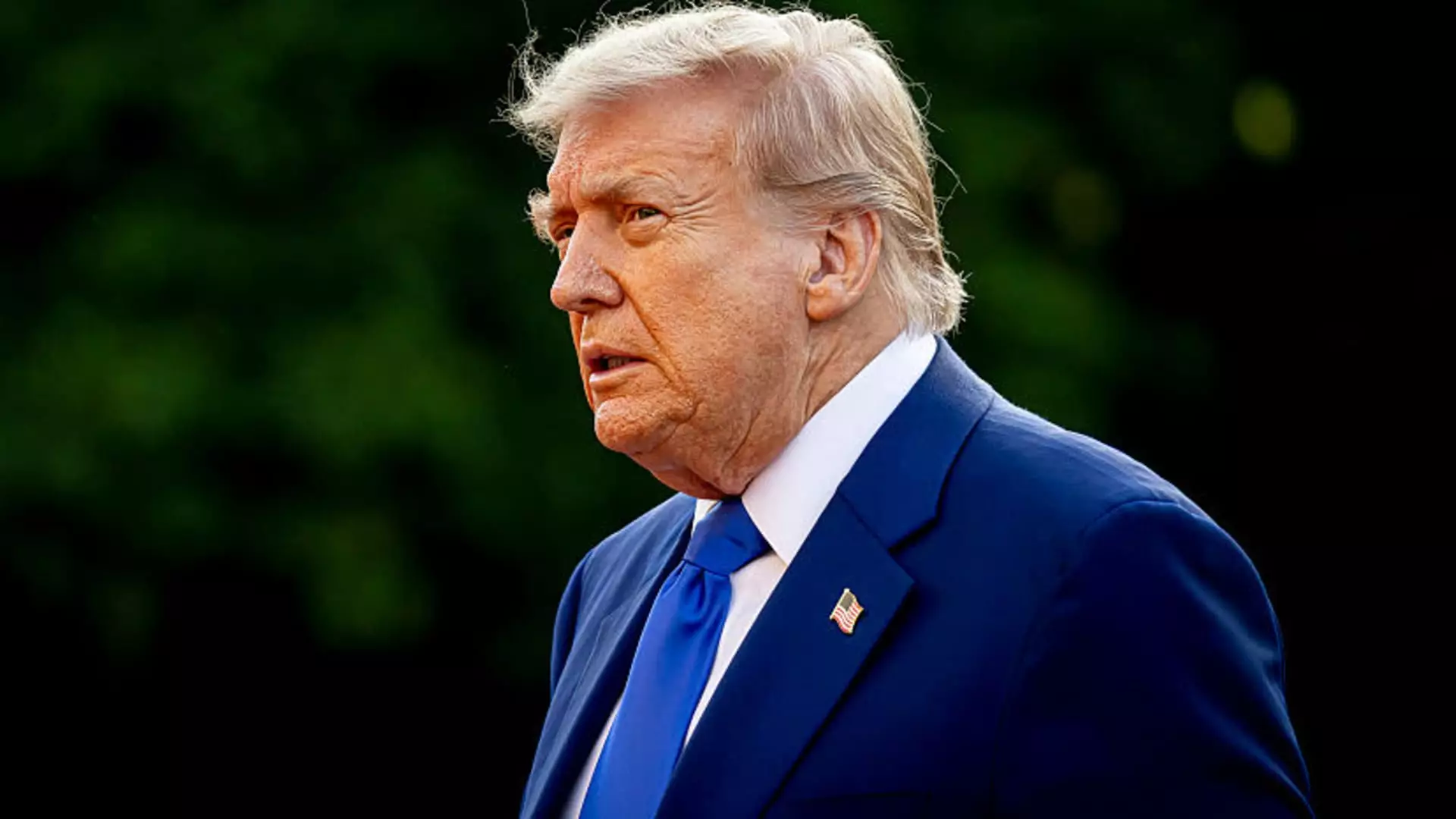As we delve into the tangled web of President Donald Trump’s trade policy, it is evident that the situation remains fluid, characterized by inconsistencies that reflect a broader pattern in his administration. The recent comments from White House Press Secretary Karoline Leavitt indicate an unsettling reality: deadlines, a cornerstone of effective negotiation, have become little more than optional guidelines. Rather than driving negotiations to a fruitful conclusion, they seem more tailored for political theatrics than genuine economic reform. By implying that the July deadline is “not critical,” the administration signals a troubling lack of commitment to concrete trade principles, allowing for the likelihood of extensions that serve more of a political purpose than an economic one.
This concession raises substantial questions about the efficacy of Trump’s approach to tariffs. The very concept of reciprocity, which is meant to ensure fairness in international trade, is being undermined. If the president holds the power to set or extend deadlines at will, how does this contribute to meaningful negotiations? The suggestion that tariffs can be adjusted on a whim places American workers and businesses at risk of uncertainty, undermining any assurances that trade negotiations might otherwise bring.
The Tariff Tug-of-War
A glance at the timeline of Trump’s tariff decisions reveals a haphazardness that cannot be ignored. His recent threats of imposing staggering 50% tariffs on the European Union, only to delay them after a moment of pushback from leaders like Ursula von der Leyen, exemplifies the knee-jerk reactions that have marked his economic policies. On one hand, this approach could be painted as shrewd negotiating tactics, yet, on the other, it reveals a fundamental volatility that could deter nations from engaging in good faith in future negotiations.
Moreover, the impending expiration of the 90-day pause on tariffs that are supposed to foster equitable economic relations throws another wrench into the works. With the looming July 8 deadline for reverting to a blanket 10% tariff, the administration’s indecision could lead to chaos. These shifting sands make it tough for businesses to plan strategically and could encourage retaliatory measures from countries that feel slighted by the unpredictable U.S. stance. The very structure intended to support American exports seems more likely to culminate in a trade war than a harmonious economic landscape.
The Reality of Incomplete Deals
Amidst the hopeful rhetoric surrounding potential trade deals with nations like India, the reality is far less optimistic. As the clock ticks down, the administration’s promises appear increasingly hollow. While there has been talk of negotiating with India and references to successfully striking agreements with China and the United Kingdom, the latter have been merely introductory frameworks, lacking the substance that fosters trust and investment.
Critics may argue that the Trump administration has done well to initiate dialogues with these key trade partners, but how many of these discussions have yielded tangible results? The ambitious claim of securing 90 trade agreements in just 90 days has turned out to be little more than a grandstanding fantasy. As we face the July 4 deadline, it’s concerning that real progress seems to hinge not on accomplishments, but on political theater where urgency and impatience reign supreme.
Economic Implications and Political Ramifications
The repercussions of this approach carry significant potential risks not just for America’s economy but also for its standing on the global stage. An erratic trading policy can lead to increased prices for consumers, which ultimately undermines the “America First” doctrine that Trump advocates. Should exporters and importers face the creeping threat of volatile tariffs, the cost of doing business escalates, a burden likely passed onto everyday Americans.
With intellectual capital and investment at stake, the suggestive idea that Congress may delay these announcements until after a major tax bill is passed raises further alarm. Are we witnessing a political calculation rather than a genuine commitment to fair trade? The notion that trade agreements are being sidelined for legislation that serves immediate political interests is worrisome and speaks to a broader concern about the current administration’s capacity to deal transparently and effectively within the realm of international relations.
In this ongoing saga of tariffs and deadlines, what was initially hoped to be a transformative economic strategy risks devolving into an illusory nightmare for both American workers and global trading partners. The stakes could not be higher, yet leadership seems characterized more by eye-catching headlines than by resonant economic action.


Leave a Reply